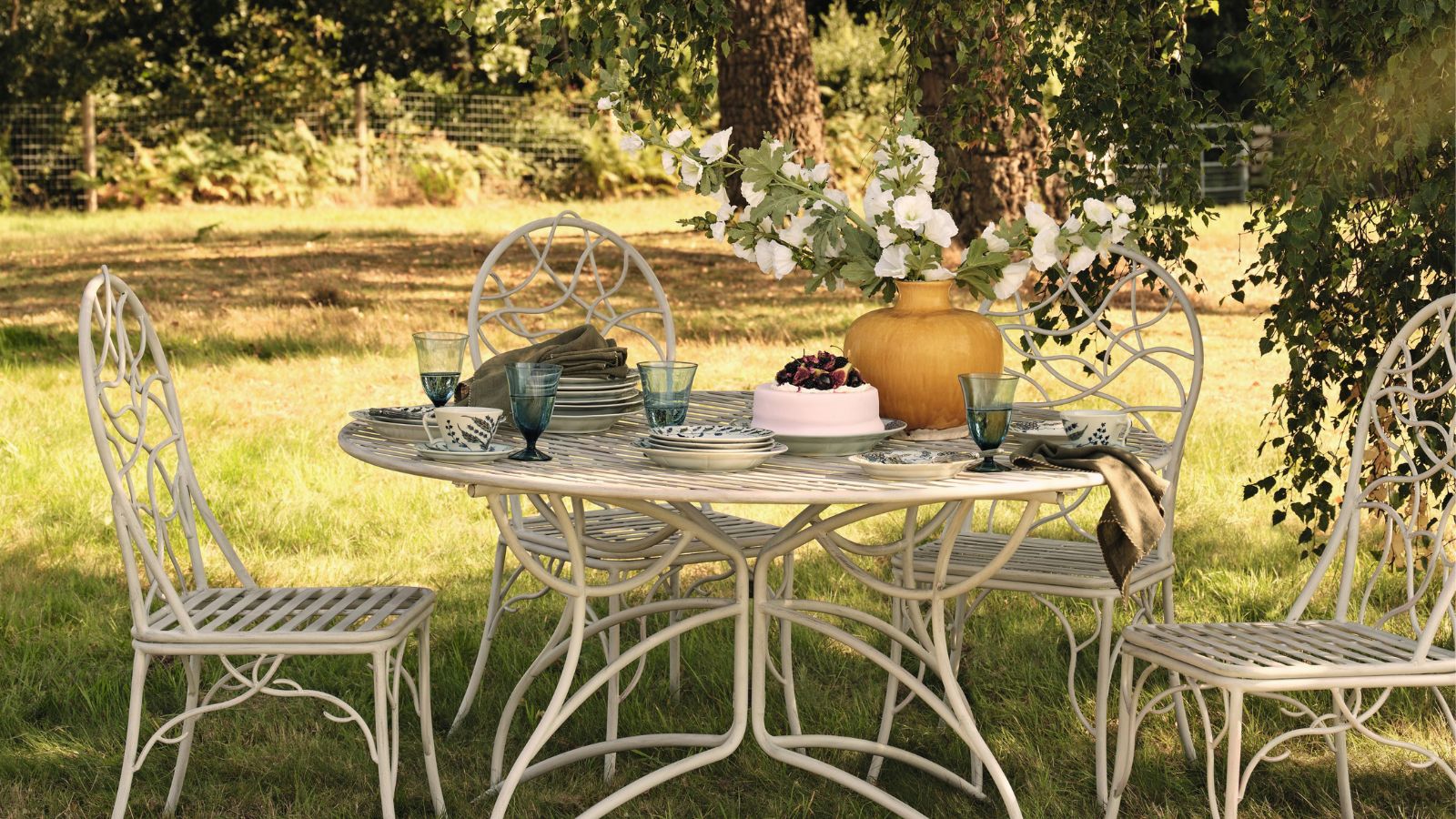How to remove paint from metal – experts share 5 useful methods
Try these DIY methods to help restore your metal to its original look and feel


While painting metal furniture or tools is a fairly straightforward task, removing paint from metal can present several challenges.
Whether you are attempting to strip paint from metal to clean and restore hardware or sprucing up large metal furnishings, such as wrought iron, there are several approaches you can try.
We asked DIY experts to share their favored methods for removing paint and restoring metal objects to their original appearance, free from the paint applied by someone else.
How to remove paint from metal
Below, our experts have detailed five methods that will help you to remove paint from your metal surfaces:

1. Chemical Paint Strippers
Chemical paint strippers such as CITRISTRIP Paint and Varnish Stripper from Amazon can remove paint from metal surfaces with ease. They contain highly active chemicals, such as methylene chloride, which break the adhesive bond holding the paint onto the metal.
‘Paint strippers are my go-to for removing stubborn paint efficiently,’ says home improvement specialist Amber Mundy. ‘Paint strippers are ideal for angled surfaces, larger items, outdoor items, and spray-painted metal surfaces.'
The Steps:
- Use a brush to apply the paint stripper to the painted metal surface in sections.
- Wait at least 10 minutes for the paint to peel off. Don’t forget to cover the section with plastic film to prevent it from drying.
- After the recommended time, remove the plastic and scrape the paint with a bladed scraper or putty knife. If the paint is still stuck, give it more time.
- Collect the scraped paint in a bucket and dispose of it as hazardous waste.
- Use a scrubbing pad for areas that are difficult to reach.
- Repeat the process if necessary.
Remember to always work in a well ventilated area and wear protective gear to avoid fumes and skin contact.

Amber Mundy is a Home Improvement Specialist at Build and Renovate. With a rich background in interior design, contracting, building, and home design, Amber has a passion for transforming spaces, seamlessly blending functionality with aesthetic appeal.
2. Heat Guns
Heat guns, also known as hot air guns, can help melt or soften paint from wood as well as metal. Andre Kazimierski, CEO of Improovy Painters, recommends using the heat-gun method for small to medium-sized metal items and for targeting specific areas on larger items.
The steps:
- Hold the heat gun 6-8 inches from the painted surface.
- Move the heat gun back and forth to distribute the heat until it bubbles and softens evenly.
- Use a putty knife or paint scraper to remove the softened paint gently.
- Collect the scraped paint and dispose of it properly.
- Use a scrubbing pad for areas that are difficult to reach.
- Allow the metal to cool, and wipe the surface with a damp cloth to remove excess paint residues.
Heat guns, including the ENERTWIST Variable Temperature Control Heat Gun from Amazon, should be used with care to avoid overheating or scorching the metal. Always work in a well-ventilated area to eliminate the risk of inhaling hazardous fumes.

Andre Kazimierski founded Improovy in 2019 and has developed it into a leading home improvement service. It is his mission to make painting more efficient for all of his clients and uses generations of expertise to inform his work.
3. Use An Angle Grinder
An angle grinder is one of the quickest and easiest methods to remove paint from metal because the machine does most of the work for you. You can use angle grinders on large, sturdy surfaces but not on surfaces that require more detailed work.
The steps:
- Start with a flap disc, which is available in various grits (abrasiveness). You can switch to a coarser grit or a wire wheel if needed.
- Ensure you have eye protection and gloves to protect against debris.
- Hold the grinder at a slight angle to the surface and move it back and forth to remove the paint. Apply gentle, even pressure to avoid damaging the metal.
- If the paint is not coming off effectively, switch to a coarser grit or a wire wheel for more aggressive removal.
- Collect the removed paint debris and dispose.

4. Baking Soda
Baking soda, aside from being a commonly used cleaning agent in many homes, can also be used to remove paint from metal. According to Eliana Coca, owner of E.C. House Cleaning, baking soda is ideal for small metal items such as screws, nuts, bolts, small tools, drawer pulls, and decorative hardware that have accidentally been painted.
The steps:
- Mix 1 quart of water with ¼ cup of baking soda.
- Bring the solution to a gentle boil.
- Place your smaller metal item in the boiling solution for 15 minutes, but for larger items, apply the solution directly with a cloth.
- After 15 minutes, remove the item from the solution. The paint should come off easily.
- Use a brush or scrubbing pad to remove any remaining paint.
You can substitute vinegar for baking soda to achieve similar results in removing paint and cleaning metal surfaces.
5. A Paint Scraper
A paint scraper is ideal for flat surfaces and small jobs where paint can be removed without chemicals. To avoid damage to softer metals, such as brass, choose a plastic blade. Select a scraper that is comfortable to hold and suitable for the job, such as a wide-blade scraper from Amazon for flat surfaces and a narrow blade for detailed areas.
The steps:
- Hold the scraper at a slight angle and apply even pressure to remove the paint. Work in sections for better control.
- Collect the removed paint debris and dispose of it as hazardous waste.
- For stubborn paint, repeat the process or consider other methods.
Another method you can try for large metal surfaces is a pressure washer set to low or medium. Ensure you use a wide spray pattern and maintain a safe distance to avoid damaging the metal surface.
Sign up to the Homes & Gardens newsletter
Design expertise in your inbox – from inspiring decorating ideas and beautiful celebrity homes to practical gardening advice and shopping round-ups.

Seraphina is a contributing editor at Homes & Gardens, writing Solved features on organizing and storage. She loves to decorate and also grow her own produce from her home in London. Her previous experience includes working at Women's Health and Fabulous Magazine.
-
 How to grow a cactus from seed – 6 easy, expert-approved steps for succulent success this year
How to grow a cactus from seed – 6 easy, expert-approved steps for succulent success this yearIf you love succulents, why not learn how to grow a cactus from seed this year?
By Lola Houlton
-
 Martha Stewart's 'ideal kitchen' is a hub of smart storage and strategic decorations – it's surprisingly easy to recreate in the smallest of spaces
Martha Stewart's 'ideal kitchen' is a hub of smart storage and strategic decorations – it's surprisingly easy to recreate in the smallest of spacesMartha's TV set kitchen features a butler sink with hidden storage, boundless drawers, and decorative shelves for easy access
By Hannah Ziegler